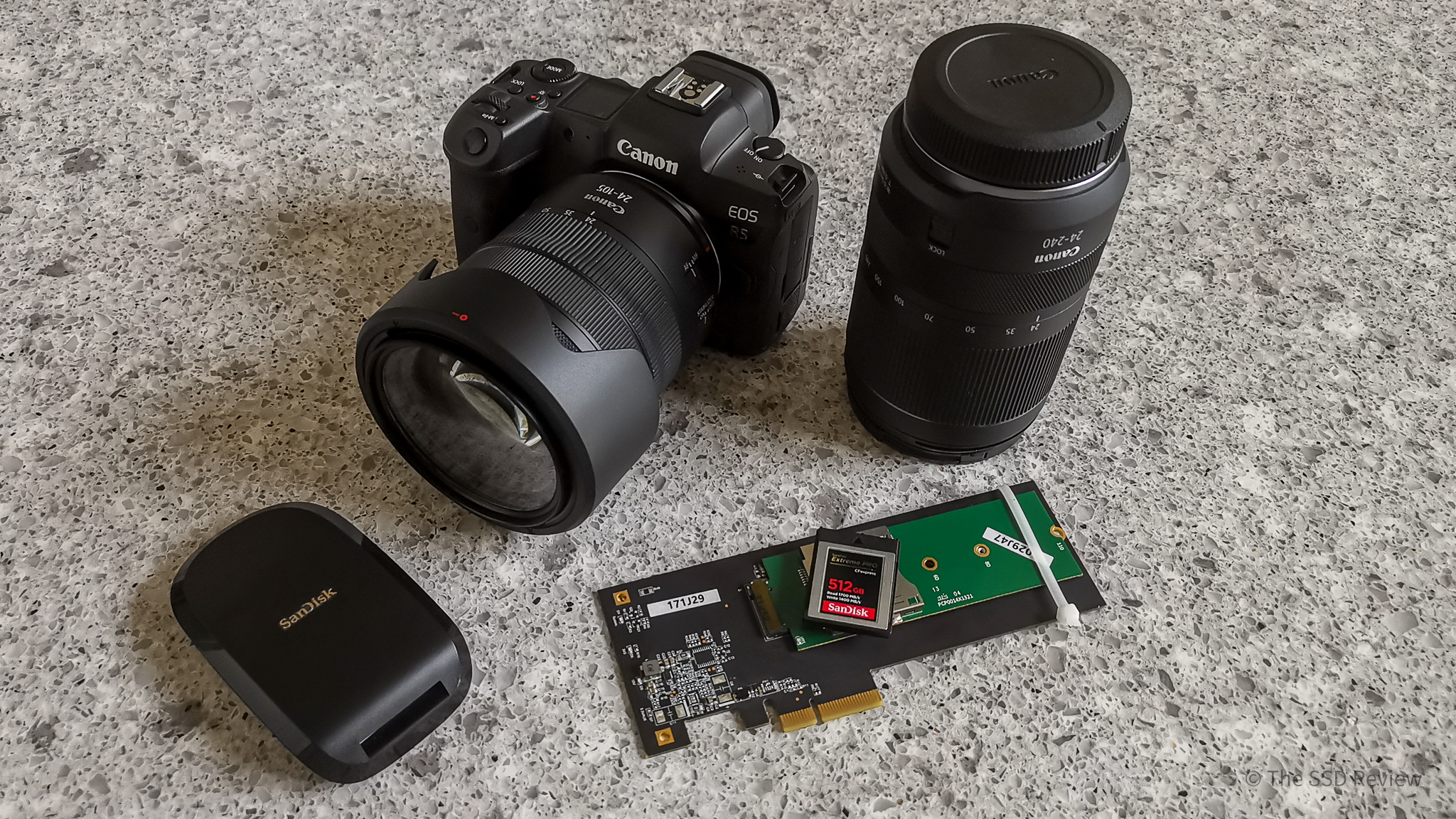In case you missed it, there has been a storm in the camera industry as of late. As much as I would like to say it’s the newest Canon EOS R5 camera I have in hand, it’s not. It is the controversy surrounding this R5 video capabilities and the correlation of internal temperatures and a point where the camera will not only cease video recording, but also, shut down. At least that is what some think. Others believe, and have been able to demonstrate to some extent, that Canon has baked in timing limitations that limit the R5. Their reasoning is such that Canon would do such in order to protect sales of their present and future next level camera release.
Whether or not a heat variable causes the R5 to shut down or Canon’s own ‘baked in’ set timing instructions, the fact that CFexpress heats up the camera cannot be denied. It’s a given. 4K HQ and 8K video require an incredible amount of data storage concurrent to that video being recorded. In the Canon R5, that means an internal sustained data movement of somewhere in the area of 400MB/s. Today, we have in hand the SanDisk Extreme Pro 512GB CFexpress Type-B card, and we are going to push this card just a bit further than I am sure even SanDisk expects us to, all to learn just how far we can go with CFexpress.
The SanDisk Extreme Pro CFexpress B Card uses a PCIe 3.0 x2 (2 lane) interface and is NVMe 1.3 compliant, It is available in 64, 128, 256 and 512GB and listed performance is variable dependent on the capacity you choose. The 512GB version lists speeds of 1700MB/s read and 1400MB/s write while the 128 and 256GB capacities drop their write speeds just a bit to 1200MB/s. The 64GB version has read speeds of 1500MB/s read and 800MB/s write. All cards are XQD backwards compatible and all have a limited lifetime warranty. Along with our Extreme Pro card, SanDisk also sent along their Extreme Pro Card reader to assist us with this report.
The SanDisk Extreme Pro Card Reader is a USB 3,1 Gen 2 (USB 3.2) card reader which includes a Type-C to Type-C cable. Because it is USB 3.2, it is capable of theoretical transfer speeds of up to 1250MB/s, but realistically, you will see performance just above the 1GB/s mark as we will show you.
At this point, and because CFExpress is so new, finding CFExpress B card readers capable of the maximum transfer speeds listed on the card is rather difficult. The two cards that we have reviewed both have maximum transfer speeds in the 1700MB/s area and one needs to use a device designed for PCIe 3.0 x2 (two lane) to reach this. The PC in use would have to be Thunderbolt 3 capable. The SanDisk Extreme Pro Card Reader, and other manufacturers readers are designed for PCIe 3.0 x1 (single lane) and reach speeds of 1MB/s when transferring data. This meets the specifications of USB 3.2 and is much more common in today’s PC system builds.
Checking Amazon, we can see the SanDisk Extreme Pro CFExpress B Card priced at $99 (64GB), $179.99 (128GB), $399 (256GB), and $872.68 (512GB). The SanDisk Extreme Pro CFexpress Card Reader lists at $49.99.
 The SSD Review The Worlds Dedicated SSD Education and Review Resource |
The SSD Review The Worlds Dedicated SSD Education and Review Resource | 

